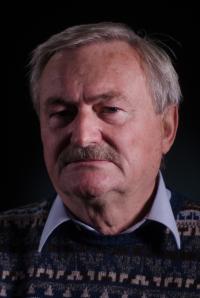They didn’t lock us up, because we were fulfilling the plan

Stáhnout obrázek
Jan Kaliba was born on 19 April 1944 in Prague, his father and mother came from the families of small businessmen and traders. During nationalisation his father lost his leather goods wholesale company, and had to earn a living as a puppeteer. The witness‘s background profile barred him from studying at university. He graduated from grammar school and trained as a cartographic lithographer. He became an expert in drawing maps and in graphics. From the late 1960s he worked at the printer‘s in Vodičkova Street in Prague, where he helped print illegal literature. And so, for example, he produced the Jazz Section‘s magazine, or Bohumil Hrabal‘s book Obsluhoval jsem anglického krále (I Served the King of England), the publication of which was not officially allowed. He also printed the obituary of Pavel Wonka, the last Czechoslovak political prisoner to die in prison. In his work as a printer and graphic designer he balanced on the edge between that which was legal and that which the Socialist regime forbade.

